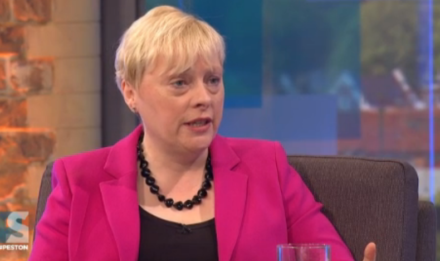
“It’s a stitch-up!”, goes the cry. This simple claim, as anyone in politics knows, is almost impossible to disprove, whatever the complexities of the situation.
That’s why Jeremy Corbyn is almost certain to end up on the ballot paper in the Labour leadership election. Anything else – whatever the legal advice – would look like a remarkable attempt by the party “establishment” to keep the veteran socialist out of a repeat of the contest in which he vanquished his opponents less than a year ago.
And I suspect Angela Eagle knows this. If she is to win and serve as a credible leader, and reclaim the party for the centrists who have sit simmering over the last ten months, then she must take on and defeat Corbyn in a fair fight.
Eagle has, herself, struck a tough tone in public. Yesterday she told ITV that Corbyn “will have to find nominations” but went on to say: “I am ready to have a leadership contest and a debate with whoever is on the ballot.”
Exactly. We can all forsee the outrage and potential for chaos if Corbyn is not in the ballot paper. Of course, MPs not unreasonably want the leader to have support in parliament. But hundreds of thousands of members would feel disenfranchised if the man they supported so strongly cannot take part in the contest over his job.
It won’t be long before we are clearer on the matter. Labour’s ruling body, the national executive committee (NEC), is expected to meet tomorrow and issue its verdict on whether Corbyn is automatically on the ballot paper or whether he needs to gain a fresh round of nominations. If Corbyn’s team do need to dust off their notebooks and go round the PLP then rule changes mean their man would now need 51 signatures from MPs and MEPs, rather than the 35 backers from the Commons, which was the threshold to stand last time.
They might still be able to obtain these names – contrary to some of the apocalyptic warnings being issued by both camps – but could also initiate a legal battle at the same time as they search for signatures. Yesterday, when asked what he would do if the NEC denied him a place on the ballot, Corbyn told the Andrew Marr Show: “I will challenge that if that is a view they take.”
This scenario, of the incumbent being kept off the ballot and pursuing a challenge to the NEC through the courts, feels too grim to contemplate. But contemplate it we must, just as many officials in Labour headquarters and Team Corbyn currently are doing.
Both sides have legal advice. The contents of these documents have been the subject of much excitement, leaks and exclusives over the last few months. Each is confident in their opinion and that could point to score draw on the legal interpretations. We should bear in mind, however, that the decision is being taken the elected representatives of the NEC rather than a judge. The initial verdict will be delivered by political practitioners. So we can expect a political decision.
Then, if the NEC rules against Corbyn, the leader could go to law. That is when things start to get really messy. If the prospect of a Labour leadership election, at a time when the Tories are in disarray, is enough to prompt anxieties, then imagine the political consequences of a lengthy court battle in which Corbyn and Momentum take on party HQ.
Eagle, I’m sure, will have spent the last two weeks war-gaming for just these situations. As a pragmatic operator, with more than two decades of experience in Westminster, Eagle will understand that the potential for a split in the party will only increase if she does not have the chance to beat Corbyn in the battle of ideas and competence. And a split, as I have said repeatedly, would be a disaster for all wings of the Labour movement – and a boon for the new Tory prime minister.
The Labour leadership election will be decided by politics rather than a judge. If Eagle wants to lead Labour into the next general election then she has to take on, and beat, the man currently in pole position.




More from LabourList
‘Ukraine is Europe’s frontier – and Labour must stay resolute in its defence’
Vast majority of Labour members back defence spending boost and NATO membership – poll
‘Bold action, not piecemeal fixes, is the answer to Britain’s housing shortage’